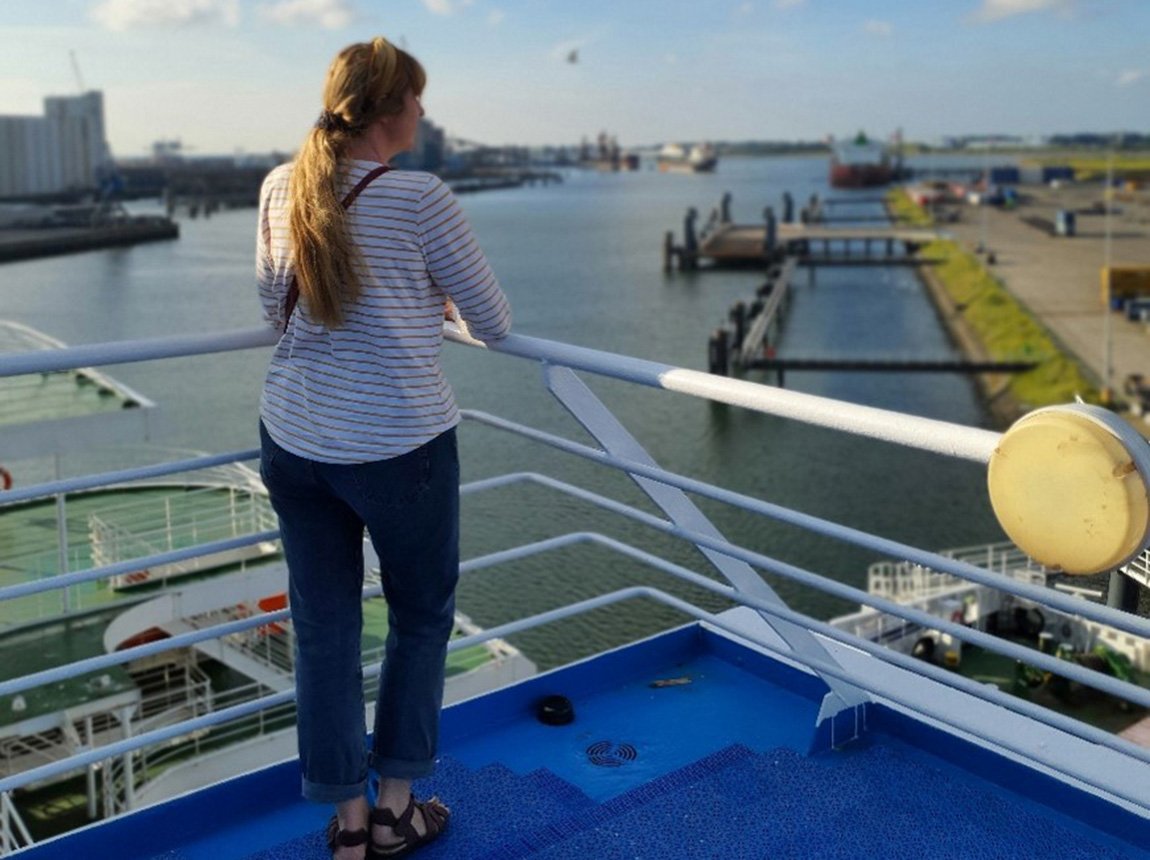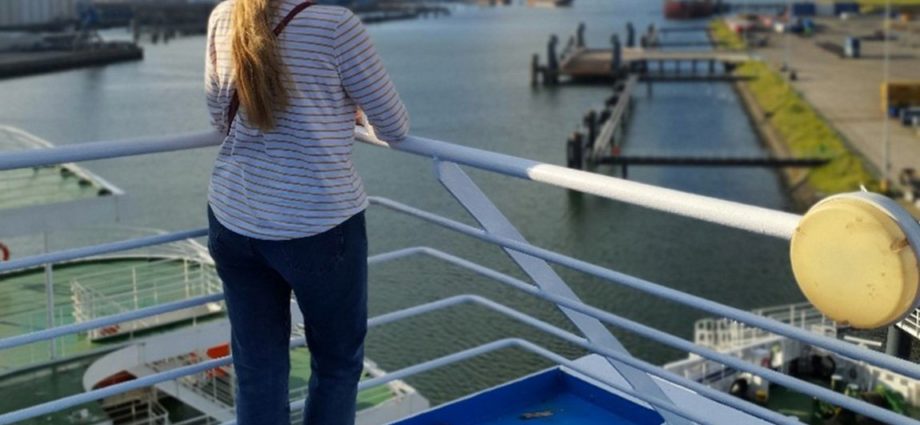
ADVERTISEMENT
Occasionally, mainly right-wing commentators will use the number of EU citizens who applied for so called Settled- and pre-Settled Status as evidence, not only that the UK is not a xenophobic country, but also that Brexit has not deterred EU citizens from staying in the UK. Yet there are unfilled vacancies in every sector from the NHS to airport staff… In reality, little is known about the number of EU citizens with the right to remain in the UK, huge numbers seem to have just vanished. Who are these ‘disappeared’ people? Where did they go?
I moved to the UK when I was still a teenager and at the time of the EU referendum, I had lived in Newcastle for 32 years, raised two children and was looking back at a career in education spanning two decades. Before 2016 I had a vague notion of moving to Germany with my British husband after retirement, but with no firm plans. After the vote to leave the EU, I thought of little else but my ‘escape’ from a country where I did not feel welcome anymore.
German exodus
I joined the Facebook group ‘Deutsche Rückwanderer aus Großbritannien‘, and was astonished at the size of the German exodus. At the time of writing, the group has 2.123 members who share their experiences of returning to Germany after often having lived in the UK for several decades. My own personal Brexit happened almost accidentally in the middle of the worst of the Covid-19 pandemic. I had travelled to Germany when my university job moved online in March 2020. With elderly parents without support and imminent travel bans I went home while I could.
The months spent in lockdown which followed gave me the much-needed opportunity to consider my options and apply to have my UK teaching qualification recognised before the end of the Brexit transition period. Like many other EU citizens, I just disappeared in the pandemic without even a goodbye. The financial and emotional cost of re-locating was enormous, the obstacles of doing so in the middle of a pandemic too many to recount. However, I was not the only one on the move, the discussions on the German returners Facebook groups turned to tips on how to navigate the travel bans with removal vans and where to get tested for Covid.
I met Nadia and Julia in the Returners Facebook group, their stories are different to mine but echo the same anguish and hurt about leaving a country that was once our home. Nadia vividly describes the heartache of packing her UK life into boxes in a Facebook post from two years ago:
Nadia
“Two days and three nights left. Surrounded by 35 years’ worth of a lifetime in boxes. I am so close to the waterworks, my eyes brim over all the time. I’ve seen friends and loved ones and I’m trying to not make it a goodbye. I have a job and flat to go to. But my heart is heavy. I am not even going “home” or “back to where I came from” because that was another place, which is completely out of reach now. So, this is the third time I leave a country, but I love this island and am truly devastated. Staying is not an option anymore. Leaving is just as painful. I just go with the flow, it’s all I can do”. “
Nadia was born in Baghdad in Iraq and tells how, although she always had German nationality, the UK became her home:
“I left Iraq at 18 for obvious reasons, went to Germany to study and couldn’t settle there at all, which was the reason why I moved to England. So, Germany was never my home country, and I was very unhappy there in those days, and when I moved to the UK, that really became my home and the UK welcomed me with open arms as part of the Iraqi diaspora.
“My mother is German which is why I have German nationality and therefore moving to Germany was the obvious thing once Iraq fell apart and more recently again once Brexit had been decided. My main problem in the UK was that I had made so many sacrifices to leave Iraq and to come and live in the “liberal West”, and if I had stayed in Brexit Britain, it would have felt like those sacrifices had been in vain because I would’ve been back in a country that is moving more to the right like Iraq was at the time. I know you cannot compare the two because Iraq was so much worse than the UK is now, but the tendency was there, and I just couldn’t live with that. So I am now in a country that isn’t really my home at all, but we are making the best of things.”
Like me and many others, Nadia made the difficult decision to leave the UK at the beginning of the pandemic. She told me about her new life in Germany:
“Almost two years later and all is well here in Germany. But the yearning remains. For friends left behind, for the sea and the moors and for our eldest son who stayed behind in the UK and whom we were not able to see again for 18 months after our move. I am still devastated by what happened, still angry at times but mostly just sad and disappointed. News from the UK still dominates what we read and listen to. My British husband never wants to return, not even for a visit! We have landed well and safely, and I love my new job. Still… I miss so many things about the UK …. some of which are not even there anymore. Life goes on. No regrets about having left. But I do miss my eldest son. Every day.”
My own Brexit means a temporary separation from my British husband while I undergo additional training to have my PGCE recognised in Germany, a process that takes 2 ½ years in my case. Fortunately, Germany has no income barriers for non-EU spouses, but those joining their EU husbands or wives now have to pass a language test and obtain a visa.
Julia
Julia is also separated from her husband for the time being, this is her story:
“I came to the UK in 1993, studied for a degree, worked in the City of London and eventually, after having two daughters, re-trained as a midwife and then worked in the NHS. Brexit was a big shock – I suddenly felt very unwelcome and eventually decided that I needed to move back to Germany, my native country where, however, I had only lived a total of 9 years. In January 2022, I secured a job as a midwifery lecturer and, after waiting months for my midwifery diploma to be recognised (a process that would have been automatic prior to the end of the transition period), I have now finally started my new job. My husband (a naturalised Brit) is still in the UK – whilst he will be able to join me, he now needs a visa (at a cost) and has to take a language test. There are also tax implications due to the fact that we will move from a non-EU country. Eventually, he will relocate his company that has paid hundreds of thousands of pounds in tax in the UK. One of my daughters recently also moved to Germany to continue her law degree.
“So many of my friends, all long-term residents in the UK with good jobs, have left in recent years, literally months after naturalising as British citizens. In midwifery, we saw a drying up of young Spanish and Italian midwives. They have not been replaced, contributing to the severe shortage of midwives. My trust in the UK has now started recruiting in African countries, in the hope of somehow alleviating the staffing crisis. Not everything in Germany is perfect (although my salary is better, and housing is of a much higher standard!), but at least I do not lose sleep anymore being angry about the lies that have been told in the UK about the EU. I am so glad to have moved but at the same time feel incredibly sad that the country I have lived in all my adult life has become unrecognisable.”
These are only three stories amongst many thousands and only cover a return to Germany. The ‘In Limbo’ project gives many more EU citizens a platform, when our voices are so often unheard. Without votes to compete for, disenfranchised EU citizens have no lobby in the UK and too often our parting is only noticed when vacancies go unfilled.
The next time you hear about unfilled vacancies, please remember the love we still have for the country that once was our home and how Brexit drove us away.


